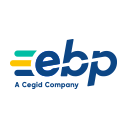Build strong customer relationships with the 8 best CRMs for the construction industry

Managing customer relations in the construction industry is no mean feat. And not just because of deadlines that slip due to the weather, suppliers or unforeseen circumstances. But above all because of the paperwork that accumulates (estimates, invoices, amendments, plans, etc.) and customers who don't always understand the technical constraints.
This is where a CRM dedicated to the construction industry can make all the difference. It gives you instant access to the history of each customer (calls, emails, what has been promised, etc.), or even all the documents concerning them. Even on site.
What are the best solutions on the market in 2025? Here is a selection of 8 concrete BTP CRMs .
What is a CRM?
Definition of CRM
Before going into the details of the solutions, let's review what exactly is meant by CRM (Customer Relationship Management).
It is software that centralises all the information relating to a company's customers and prospects in a single database.
What are the functionalities of CRM for a construction company?
Be careful not to confuse it with a simple contact file. Above all, a CRM makes it possible to industrialise sales monitoring and business management from A to Z.
In practical terms, the software will integrate :
- The customer database with all the relevant information:
- contact details ;
- contacts (project owner, project manager, architect, inspection bodies, etc.) ;
- Turnover ;
- types of service ;
- materials installed ;
- equipment installed.
- A complete history of exchanges:
- emails ;
- calls ;
- appointments ;
- contracts signed ;
- complaints ;
- after-sales service.
- Business management, with tracking of leads, calls for tender and current opportunities. For each project, you can create the design file directly in the CRM, with the specifications, plans and descriptions. The estimate is then costed, with measurements, ratios and outlays. Libraries of works, schedules and reference prices are integrated to save time.
- Analysis and management tools with customisable dashboards. You can view in real time :
- the status of current business ;
- the sales pipeline
- projected site profitability
- team occupancy rates
- pending invoices.
The advantage of a CRM? Constant dialogue between sales and operations.
Can a CRM be connected to a building company's other software?
Yes, and fortunately so, because it would be a real shame to work with a software package in isolation.
This integration has even become an essential criterion for construction companies:
- with site monitoring software, in both directions, with customer information from the CRM transferred to the site monitoring software, or site progress data sent back to the CRM to keep customers informed;
- with accounting software, to transfer validated estimates and invoices from the CRM to the accounting system, and in the other direction, to monitor customer payments.
In practice, we can see that publishers offering CRM solutions for the building and civil engineering sector almost always supply more comprehensive software of the ERP (Enterprise Resource Planning) or CMMS (Computerised Maintenance Management) type. This makes sense, because the needs of the construction industry mean that customer relations need to be connected to site monitoring at all times.
So the ideal solution is to have all-in-one software that centralises site documents (service orders, execution schedules, worksheets, site logs, meeting minutes, purchase orders, delivery notes, invoices, work progress reports, etc.) with customer documents (quotes and contracts).
Why is a CRM essential for a construction company?
As we said, the processes and the business are very specific. If you use a traditional CRM, you'll quickly come up against limitations. So you need a CRM tailored to the realities on the ground in the building industry.
1. Easily produce estimates and work progress reports
Responding to a call for tenders takes an inordinate amount of time. You have to go through the tender documents, collect the quantity take-offs, consult the reference prices, contact the suppliers, and so on.
With a BTP CRM, much of this work is automated:
- quantity surveys are imported in just a few clicks;
- recurring jobs are stored in libraries from which you can draw ;
- hourly rates and dry disbursements are pre-filled by trade.
You get a detailed, corrected estimate in just a few minutes, with the right sales coefficient to validate your margin. All presented in the company's colours, for a professional look.
The same principle applies to the status of the work: percentage of completion, progress payments, DGD, final accounts... it's all done without re-entering data.
2. Monitor the progress and profitability of your projects
There are hundreds of pieces of information to be compiled for each site: daily reports, quality sheets, delivery notes, quantity surveys, acceptance reports, etc. It's not always easy to keep track. It's not always easy to see clearly, and quickly.
A CRM is not a site monitoring tool, but it does centralise this key data to provide an overall view of the progress of work and receipts:
- delays are highlighted
- reservations are traced
- FTMs are recorded, etc.
You can zoom in on the profitability of each lot and trade to detect any budgetary slippage. With this information available in real time, you can make adjustments before it's too late and secure your margins.
3. Digitising exchanges with customers and contractors
On a construction site, there's no question of wasting time on paperwork. CRM simplifies and streamlines all exchanges:
- plans, specifications, amendments and site reports are sent and annotated directly via the collaborative platform;
- customers can track the progress of work and communicate with the works supervisor via a web portal or mobile app;
- service providers (engineering office, surveyor, CSPS, OPC, etc.) may only have access to information that concerns them.
Everything is traced, time-stamped and secured. This reduces the number of unproductive meetings and allows you to concentrate on your core business.
4. Keeping abreast of upcoming opportunities
The lifeblood of the construction industry is having work. To secure your workload, you need to prospect relentlessly.
CRM makes this business intelligence easier, because you can :
- track upcoming projects in your area
- identify key contractors
- set up alerts on public procurement contracts, etc.
Leads can be more easily qualified. Then they can be prioritised and distributed according to your own criteria (budget, schedule, building trades). The sales pipeline is updated in real time, giving you a clear view of the forecast. You can anticipate recruitment and purchasing with greater confidence.
Comparative table of the best construction CRMs in 2025
1 of 6
 myB2O BTP |  divalto weavy |  EBP Bâtiment |  Efficy CRM |  Eudonet CRM |  Extrabat |
|---|---|---|---|---|---|
| For companies with 2 to 250 employees | For companies with 51 to 5000 employees | For all companies | For all companies | For companies with 2 to 5000 employees | For companies with 1 to 250 employees |
| See software | See software | See software | See software | See software | See software |
| Learn more about myB2O BTP | Learn more about divalto weavy | Learn more about EBP Bâtiment | Learn more about Efficy CRM | Learn more about Eudonet CRM | Learn more about Extrabat |
B2O
The French publisher has 15 years' experience and over 15,000 active licences, and it shows. With B2O, you get a stand-alone CRM specialising in the construction industry. But in reality, this tool is part of an integrated suite that also includes an ERP and business applications, called myB2O BTP. This flexibility means you can start with a small scope and then extend the solution as your business grows.
👍 Benefits :
- A precise estimate configurator with standard works, import of quantity take-offs and automatic updates.
- Pipeline monitoring by account manager, team, branch and region. You can also take advantage of model dashboards that are easy to re-use.
- A mobile business application (price studies, job consultation, report entry), available even offline.
- Extensive customisation to match your company's specific requirements (processes, documents, reporting).
👎 Disadvantage: implementation can be complex, especially when CRM and ERP are combined. You'll need several weeks of full-time work and business-specific workshops to exploit the tool's full potential.

myB2O BTP
Divalto Weavy
Divalto Weavy is a comprehensive CRM system designed for a wide range of sectors, not just the construction industry. It is certainly the tool that pushes the envelope the furthest: synchronised diaries, customer and site data at your fingertips, mobile order entry and reporting, etc. This CRM is available in 4 ranges, from Standard to Complete.
👍 Benefits :
- Simple, unified use on computer, tablet and smartphone.
- Customised prospect/customer files for detailed business qualification.
- Numerous integrated document templates: quotes, orders, reports, contracts.
- Catalogue view with photos and videos
👎 Disadvantage: very rich! Ergonomics are not always intuitive and the tool may seem complex at first. A gradual increase in skills, function by function, is often necessary to avoid drowning users. Support and training are key factors in getting users on board.

divalto weavy
EBP Building
True to its reputation as a publisher of easy-to-use software, EBP has designed a pragmatic and affordable CRM solution. EBP Bâtiment is designed for small construction companies. It enables them to easily manage their estimates, invoices and receipts, especially when they don't have a large administrative department. All the essentials are there, in a simple interface, at a very reasonable cost.
👍 Benefits :
- Estimates and invoices drawn up in just a few clicks, thanks to a comprehensive library of works.
- Automatic conversion of quotes into orders, delivery notes and invoices.
- Invoice payment tracking, reminders and pre-filled penalty letters.
- Statistical reports and dashboards to help you manage your business.
👎 Disadvantage: EBP Bâtiment focuses on the fundamentals of customer management and will not be suitable for organisations that want to industrialise their prospecting, analyse their portfolio in detail or automate their marketing campaigns. In this niche, it's best to move upmarket.

EBP Bâtiment
Efficy
Efficy has developed its CRM for the construction and public works sector, under the name Maxo. You'll be able to cover all aspects of BtoB customer relations with a single, coherent tool, taking advantage of a highly qualified database.
👍 Benefits :
- Ultra-complete worksite and customer files with a history of exchanges and documents.
- Multi-criteria segmentation for easy targeting of sales and marketing campaigns.
- A dedicated portal to provide customers with real-time monitoring of their projects.
- A la carte reporting to analyse profitability and satisfaction by segment.
👎 Disadvantage: Efficy is aimed more at mature SMEs and ETIs with the resources to administer the tool and exploit its full potential. As with B2O and Divalto, implementation can take several weeks.

Efficy CRM
Eudonet
Eudonet's CRM is one of the most comprehensive for construction companies and tradesmen. It is an integrated tool that takes care of the customer from A to Z: pre-sales, project management, after-sales service, link with accounting management, etc. Your teams and your customers have a real-time, unified view of all interactions, for transparent, effective dialogue.
👍 Benefits :
- Integrated graphic design tools for communication through email campaigns, invitations, etc.
- A responsive web portal to give customers a clear overview of their projects.
- Management tools (dashboards, alert triggers) to anticipate risks.
- The creation of automated response paths to match your internal business processes.
👎 Disadvantage: while Eudonet does a good job of covering the customer relationship management aspect, the operational side of the business is lighter. Site monitoring will often require the deployment of third-party applications to gather data from the field. This needs to be factored into the project price and schedule.

Eudonet CRM
Extrabat
Extrabat offers a comprehensive suite for building professionals, and capitalises on a very competitive price (less than €50 per month!). More than just a CRM, this tool also manages price studies, quantity surveys, planning, time and attendance, work invoicing, etc. Extrabat responds precisely to the challenges of each trade and covers every aspect of a project, with a very interesting granularity of data.
👍 Benefits :
- Detailed price studies (disbursements, subcontracting, supplies, etc.) linked to work libraries.
- Task scheduling and time recording to monitor progress and costs in real time.
- Automated work statements and invoices based on purchase orders.
- Analysis of variances between planned and actual work, so you can adjust your strategy as you go along.
👎 Disadvantage: Extrabat is not suitable for companies issuing invitations to tender or for the complex processes of large organisations.

Extrabat
Interfast
Like Extrabat, Interfast has developed a complete web and mobile solution for building sites. No more paperwork: site reports and document exchanges can be carried out via a single application, even without a network. Quotes, cash flow, schedules, work and maintenance... everything is done in one all-in-one tool.
👍 Benefits:
- Intuitive entry of site reports on a single, responsive interface.
- Detailed budget tracking: expenses, hours, stocks, purchases, etc. compared with forecasts.
- A secure portal for exchanging plans, administrative and technical documents with your customers.
- Sharing diaries between sales staff, drivers and management to improve coordination.
👎 Disadvantage: Interfast is mainly geared towards activity monitoring, with fairly lightweight costing functions. It interfaces with market tools (quantity survey software, ERP, etc.), but is no substitute for an expert solution for complex, detailed price studies. Complementarity needs to be organised.
Obat
Obat offers a software suite built around a CRM. More specifically, 3 packages are available (Pro, Growth and Booster), with the Pro package corresponding to the CRM alone for €25 per month. For €85 a month, you can upgrade to a version that gives you complete visibility over the economics of your projects (combining price research, planning, expenditure and invoicing).
👍 Advantages :
- Complete price studies: disbursements, selling prices, coefficients, quantity surveys, variants, etc.
- Detailed financial monitoring with automatic calculation of progress and status.
- Integration of purchases, rentals and subcontracting for an overall view of costs.
- Highly detailed analysis of profitability by project, by customer and by trade.
👎 Disadvantage: Obat clearly targets management and supervisory functions. Specific developments are often required to add value for production teams (mobile clocking, field activity reports, etc.). This is a dimension that needs to be included in the specifications.
Which CRM solution should you choose if you are a construction company?
As we've seen, each software publisher is more or less suited to certain needs. To find the right solution for you, there are a few key factors to sift through.
Let's take a look at them. 👉
Functional coverage
The tools presented do not all have the same purpose, and range from pure CRM to integrated ERP.
List your priorities (sales, marketing, research, works, after-sales) and assess your need for fluidity between departments. The further you want to go into field monitoring, the more important the business dimension will be in the final choice.
Site granularity
Quantity surveys, disbursements, planning, materials, labour, etc. Pay close attention to the degree of precision offered to manage the commercial side of your projects.
If the CRM software is too macro, you're in trouble.
If it's too micro, it's a gas factory.
The right size of CRM depends on your organisation and your trades.
Support over time
Your business is bound to evolve. So make sure your CRM is flexible and interoperable.
It's better to have an open, modular solution that adapts to your processes and interfaces with your tools (accounting, payroll, EDM, BI). You also need a partner that offers proximity and responsiveness, as well as business expertise.
Construction is a tough business, and we're often faced with a lot of unforeseen technical problems!
Software ergonomics
Quotes, reports, time recording... your users need to find what they're looking for.
Aim for fluid navigation, practical mobile apps and well thought-out office templates. Don't forget that the success of your project depends (also) on the support of your teams.
BTP CRM in a nutshell!
In conclusion, a construction CRM is a real asset for optimising customer relationship management, structuring exchanges and improving site monitoring. By centralising information and automating certain tasks, these solutions enable companies to become more efficient and responsive.
The choice of CRM will depend on the specific needs of each structure, its organisation and its level of requirements in terms of commercial and operational management. The key is to opt for a tool that can be easily integrated into existing processes and that supports the company's growth over the long term.
Article translated from French

Maëlys De Santis, Growth Managing Editor, started at Appvizer in 2017 as Copywriter & Content Manager. Her career at Appvizer is distinguished by her in-depth expertise in content strategy and marketing, as well as SEO optimization. With a Master's degree in Intercultural Communication and Translation from ISIT, Maëlys also studied languages and English at the University of Surrey. She has shared her expertise in publications such as Le Point and Digital CMO. She contributes to the organization of the global SaaS event, B2B Rocks, where she took part in the opening keynote in 2023 and 2024.
An anecdote about Maëlys? She has a (not so) secret passion for fancy socks, Christmas, baking and her cat Gary. 🐈⬛